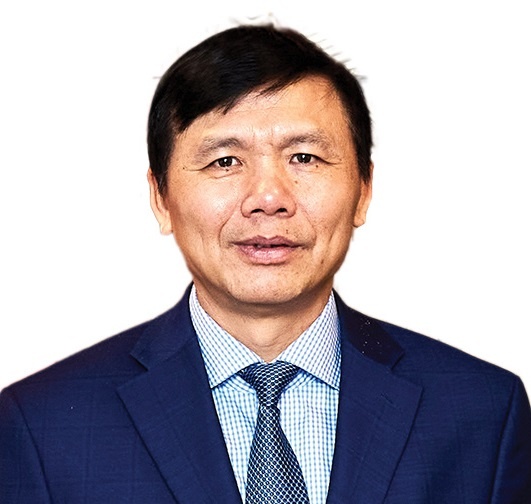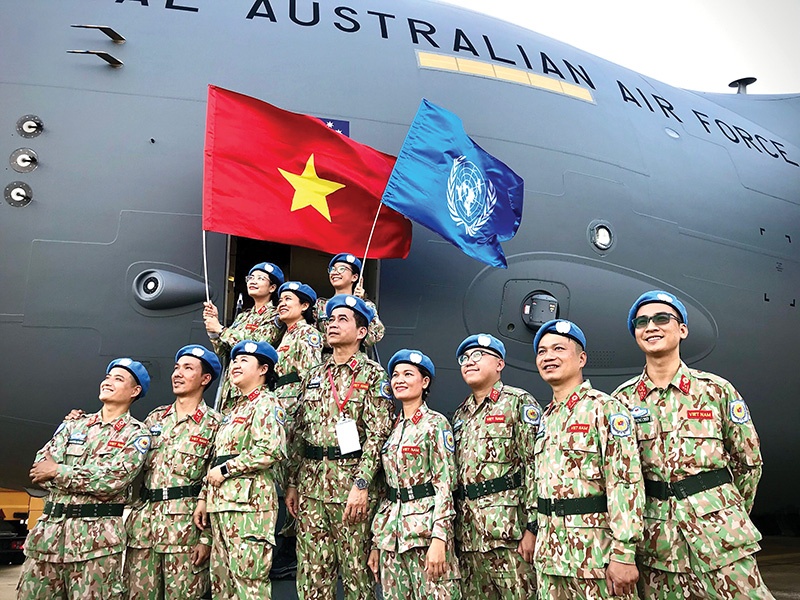Contributing on the global stage
What have been Vietnam’s contributions to the international community after two years as non-permanent member of the United Nations Security Council (UNSC)?
 |
| Ambassador Dang Dinh Quy, Permanent Representative of Vietnam to the United Nations |
Over the past two years at the UNSC, we had made active contributions to the shared activities of the international community. We actively engaged in finding solutions for issues on the council’s agenda in all regions, as well as other important issues such as non-proliferation of weapons of mass destruction, protection of civilians in armed conflicts, maritime security, climate change, and responding to the COVID-19 pandemic.
We also encouraged consensus within the UNSC in an effort to increase cooperation and dialogue, reduce tension and confrontation, and seek fair and acceptable solutions to address regional and global peace and security challenges.
As president of the UNSC in January 2020 and April 2021, we coordinated and oversaw the council’s operations, and solved arising issues in a satisfactory and effective manner, which contributed to boosting the shared activities smoothly. This included presiding over 60 official and private meetings, as well as facilitating negotiations and adoption of important decisions of the body.
Key documents that could be mentioned are two resolutions on the protection of indispensable civilian objects and on the extension of mandates of international residual mechanisms for criminal tribunals, and three presidential statements on respect for the UN Charter in maintaining peace and security in the world, the role of regional organisations in enhancing confidence-building and dialogue, and mine action in armed conflicts.
Besides frequent consultation with relevant parties, Vietnam also always kept its commitments in making all information transparent and encouraging the participation of UN member states in the UNSC’s shared activities.
In what way has Vietnam’s status and prestige been enhanced?
Prestige is a difficult thing to quantify, but it can be seen through the number of votes in favour of Vietnam. In addition to achieving a record number of votes, 192 votes out of 193 countries supporting our membership in the UNSC election, in the past two years, Vietnam’s candidate for re-election to the International Law Commission was elected with the number of votes ranking fourth among 11 candidates from the Asia-Pacific group. Vietnam’s candidates for other bodies such as the Universal Postal Union and the Board of Governors of the International Atomic Energy Agency also received a high number of votes.
Prestige is also reflected in the extent to which countries responded to and supported our initiatives. In 2020, our initiative to have the UN designates December 27 as the International Day of Epidemic Preparedness was co-sponsored by more than 120 countries and adopted by the General Assembly by consensus.
In 2021, the initiative to establish the Group of Friends on the 1982 UN Convention on the Law of the Sea, launched and campaigned by Germany and Vietnam, also received great support. Of course, the number of votes and level of response to our initiatives can be traced back to many factors.
But if Vietnam were not a member of the UNSC and failed to implement our role well, it is difficult to achieve such a high number of votes and responses.
 |
| Vietnamese troops have been working alongside other countries in vital peacekeeping missions |
What is the significance and also the lessons to be learned for Vietnam after fulfilling the role as a non-permanent member of the UNSC?
Vietnam’s role as non-permanent member of the UNSC for the 2020-2021 term was a concrete step to continue implementing the Party’s policy of multilateralisation and diversification, actively participating in and promoting the country’s role in multilateral mechanisms, especially ASEAN and the UN.
Successfully assuming the role as a non-permanent member of the UNSC for the second time has demonstrated Vietnam’s strong commitment to multilateralism based on international law, with the UN playing a central role.
Through the council, we have continued to promote comprehensive and effective integration into the global governance system as the UNSC is the UN’s leading body responsible for the maintenance of international peace and security, with great and far-reaching influence over the world.
Membership on the UNSC has contributed to enhancing Vietnam’s role in building and shaping multilateral institutions and the global political order and in important and strategic issues and mechanisms to Vietnam’s interests, in accordance with the country’s specific capabilities and conditions.
At the same time, being a member of the council has helped Vietnam deepened bilateral relations with countries, partners, the UN and international and regional organisations, enhancing cooperation effectiveness, including the comprehensive partnership between ASEAN and the UN, and demonstrating bravery and ability to skillfully and satisfactorily handle arising complexities.
One of the biggest lessons learned is the mastery of policies, guidelines, thorough preparation, in addition to the determination and ability to skillfully handle arising complexities, and a constructive approach.
It is the participation of the whole political system, close attention, direction and participation of the senior leaders of the Party and the state, as well as participation and coordination among relevant ministries and agencies, notably the key role undertaken by the Ministry of Foreign Affairs, as the central institution charged with leading the foreign affairs, and Vietnamese representation in foreign countries.
In addition, it is necessary to have an effective and appropriate mechanism for assigning and decentralising decision-making, and a well-implemented, timely and effective reporting and directing mechanism.
Another lesson is to skillfully combine multilateral diplomacy with bilateral diplomacy, take advantage of multilateralism to deepen bilateral relations with key countries, partners, international organisations, and the UN.
We have taken the opportunity of Vietnam’s dual role as the ASEAN chair and the UNSC non-permanent member in order to strengthen the ASEAN-UNSC relationship, and promote ASEAN’s voice at the UNSC and the UN more broadly.
How do you evaluate the current global situation and the activities of the UNSC in the past two years, which have impacted Vietnam in the process of assuming the UNSC membership?
The world’s political, security, and socioeconomic situation in the past two years had experienced many complicated and unpredictable developments, with the appearance of emerging and more complicated hot spots and instability.
Major countries had increased strategic competition, while rising tensions and conflicts took place in many regions, and non-traditional security challenges such as climate change, water security, terrorism and organised crime have become increasingly serious and more difficult to control. The COVID-19 pandemic had been an unprecedented global challenge that affected all aspects of international life.
In that context, the UNSC had to adjust its operational methods in order to adapt and continue to take on a large volume of work in all regions of the world.
Vietnam has advantages as its status is increasingly enhanced in the region and the wider world. We have established diplomatic relations with 189 out of 193 countries and good relations with all major countries, including the permanent members of the UNSC.
The international situation had been complicated, but all countries understood the need to strengthen international and multilateral cooperation, and strengthen the role of the UN, including the council as the leading body under the UN Charter in charge of maintaining international peace and security.
Countries have also seen that they cannot act unilaterally in face of global issues, but need to coordinate and act collectively. There might have been differences, but in many cases they still maintained cooperation for their common interests.
At the same time, Vietnam encountered numerous challenges during a complex global situation which required us to skillfully resolve differences between member states but safeguard national principles and interests. Together with other UNSC members, Vietnam had to address such issues while making efforts to overcome the pandemic.
What the stars mean:
★ Poor ★ ★ Promising ★★★ Good ★★★★ Very good ★★★★★ Exceptional
Related Contents
Latest News
More News
- VinaCapital launches Vietnam's first two strategic-beta ETFs (February 26, 2026 | 09:00)
- PM sets five key tasks to accelerate sci-tech development (February 26, 2026 | 08:00)
- PM outlines new tasks for healthcare sector (February 25, 2026 | 16:00)
- Citi report finds global trade transformed by tariffs and AI (February 25, 2026 | 10:49)
- Vietnam sets ambitious dairy growth targets (February 24, 2026 | 18:00)
- Vietnam, New Zealand seek level-up in ties (February 19, 2026 | 18:06)
- Untapped potential in relations with Indonesia (February 19, 2026 | 17:56)
- German strengths match Vietnamese aspirations (February 19, 2026 | 17:40)
- Vietnam’s pivotal year for advancing sustainability (February 19, 2026 | 08:44)
- Strengthening the core role of industry and trade (February 19, 2026 | 08:35)

 Tag:
Tag:




















 Mobile Version
Mobile Version